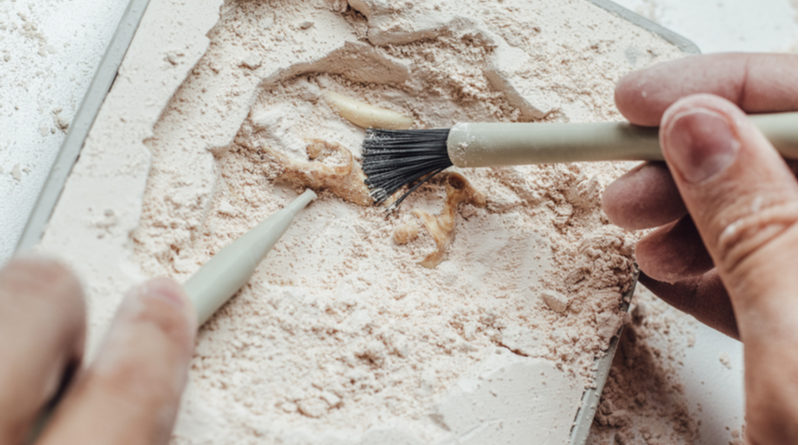Archaeology Courses
Considering a Course in Archaeology?
Are you interested in the evolution and development of humans over time and how this impacts our current society? A sense of our history and where we come from is an important driving force in the way that societies and cultures have evolved. Archaeology is a way to connect with the past, our heritage, and the people who came before us and to discover how they lived.
It provides cultures of the past with a voice that may not have existed in written records due to several factors such as who wrote the records and if records even existed at the time. Archaeology allows us to study the past and learn from it as we move forward making it critically important to our development as humans.
What is Archaeology?
Archaeology is the study of human culture, history, and behavior through the material possessions and remains that have been left behind by people. It is the investigation into the ways of life of the people of the past by examining how they interacted with the environment, the things that they made, and any other evidence that helps to tell the story of how these people lived.
Archaeology involved the excavation of sites and the analysis of artifacts and physical remains all around the world. Man-made objects and items that are left behind are known as artifacts and help archaeologists learn about the people of the past and their diets, tools, weapons, dress, and the way these people used them and made them a long time ago.
Excavation is the act or process of digging to remove something specific from the ground in a planned and precise way. Archaeologists investigate how and where to dig and collect artifacts by searching and observing the surface of the earth to find anything related to understand human life. Archaeologists can discover dig sites using their knowledge of already discovered history and patterns of people or by accidental discoveries unearthed by other people and reported to the authorities.
Archaeologists can also use aerial or satellite imagery to locate potential dig sites, or use equipment that can identify things that cannot be seen by the naked eye. Examples of this include shovel testing where a small hole can be dug and the soil removed for testing in sites where Archaeologists think that discoveries of importance may be found. Archaeologists will carefully remove, record, and store any finds so that they can be investigated as pieces of a very important puzzle explaining more about history.
Why is Archaeology so important?
Archaeology aims to understand how and why human behavior has changed over time, it allows us to understand and reflect on human nature and survival. Archaeologists search for patterns in the evolution of significant cultural events such as the development of farming, the emergence of cities, or the collapse of major civilizations for clues of why these events occurred and what we can learn from them.
What Will I Learn about Archaeology?
• You will learn about archaeology, planning excavations, and how a dig works.
• You will learn about storing, handling, recording, and transporting artifacts.
• You will learn about laboratory examinations of materials found during excavations and how to analyze these findings.
• You will learn about bone and skeleton analysis and archaeological science
• You will learn about the periods, places, cultures, and events of the past and how to investigate the social, historical, and cultural contexts of each.
Career Opportunities in Archaeology
After completing your course in Archaeology, you can expect to work as an Archaeologist, Conservator, Academic researcher, Heritage Manager, Museum Curator, Gallery Curator, Historic Buildings/Sites inspector, Conservation Officer, Archivist, Cartographer, or Consultant.
If you’re serious about doing a course in Archaeology, check out courses in the Nightcourses.co.uk national course finder.




